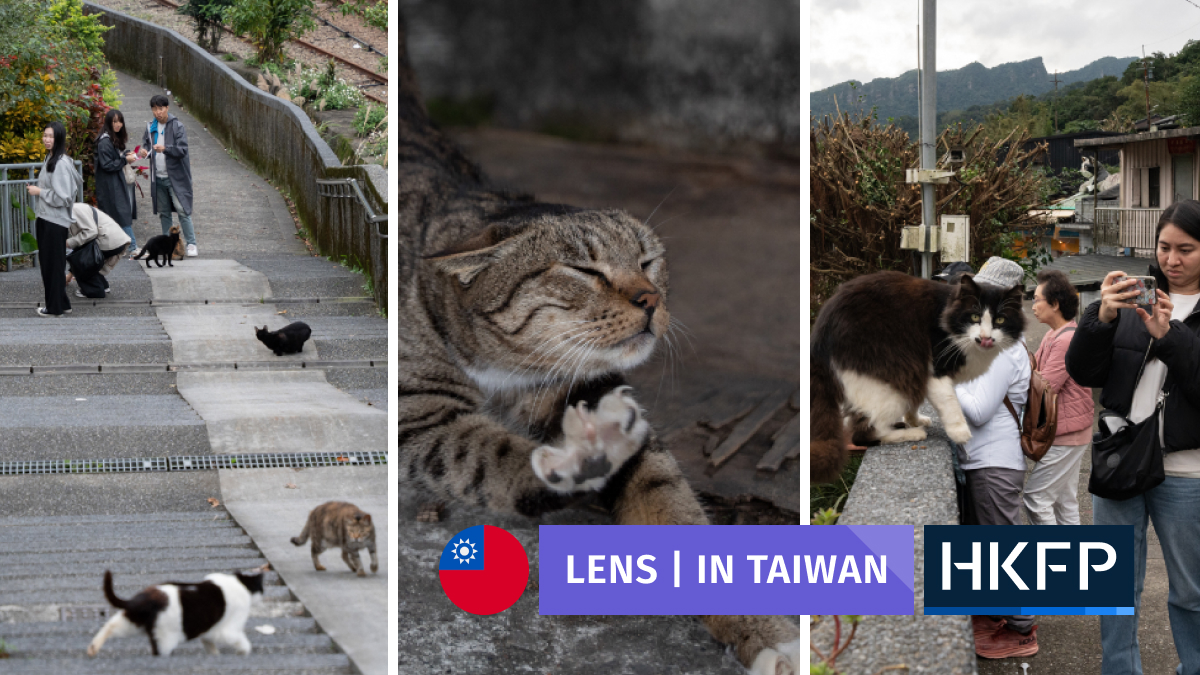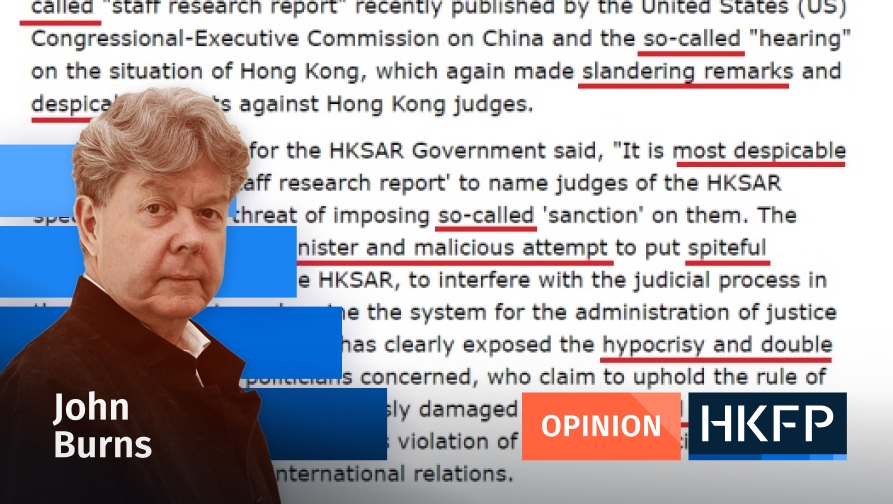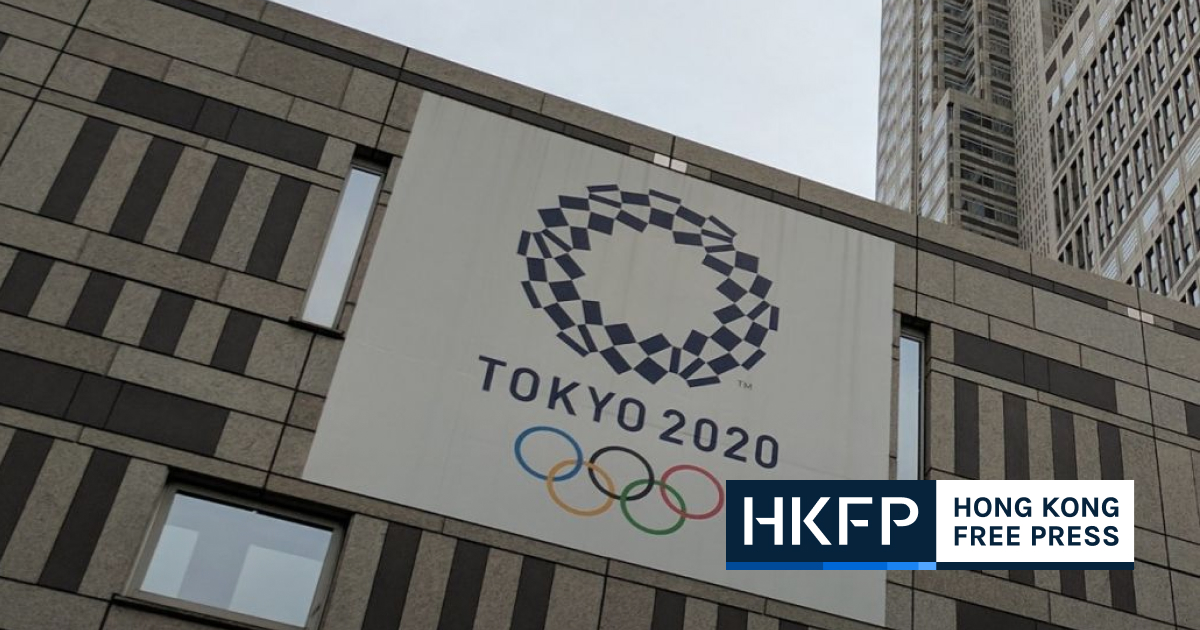An artist created a multicoloured temporary land-art installation from marine plastic waste on Sunday, as part of a clean-up of Lantau’s Fan Lau beach.
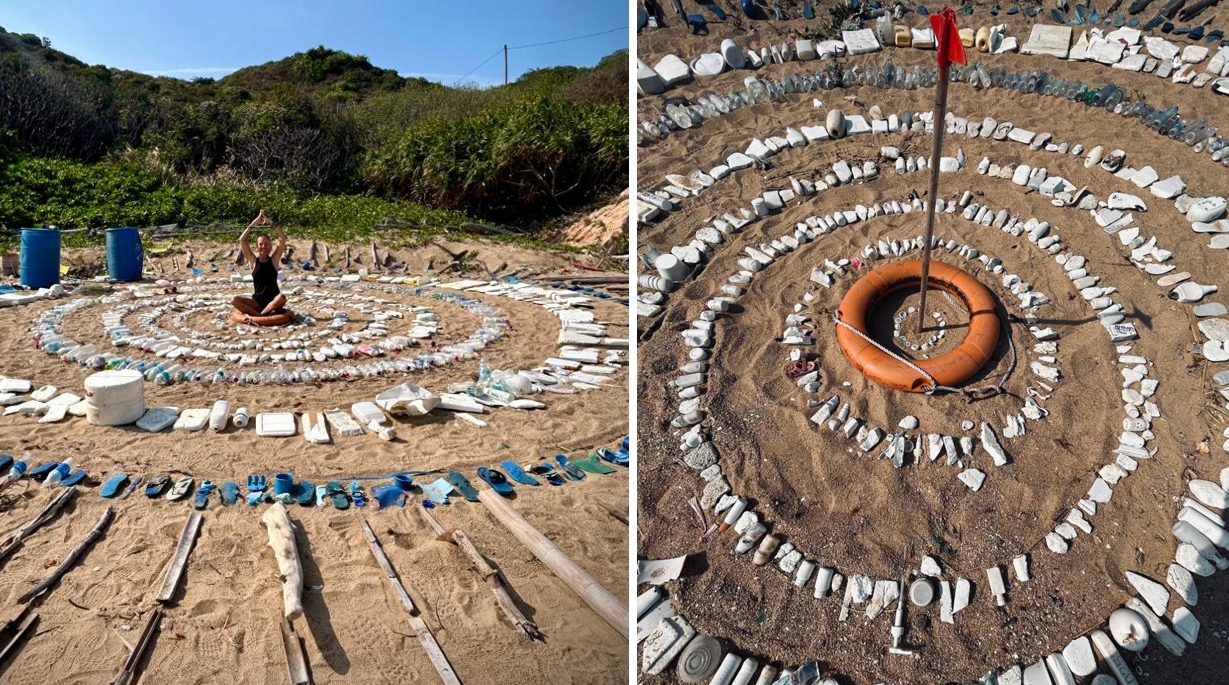
German artist Liina Klauss led six volunteers in collecting 17 50-litre rubbish bags of refuse. The items were arranged in circles – measuring 20 metres in diameter – and photographed as part of Klauss’s international “curating the beach” series.
The project took five hours and involved 600 pieces of broken styrofoam, 356 PET bottles, 425 cosmetics containers, 132 flip-flops, 23 plastic toys, five styrofoam boxes, five fishing buoys, two oil barrels, a rice-cooker and a lifesaver.
The installation was then cleared, with the refuse being picked up by the Environmental Protection Department.
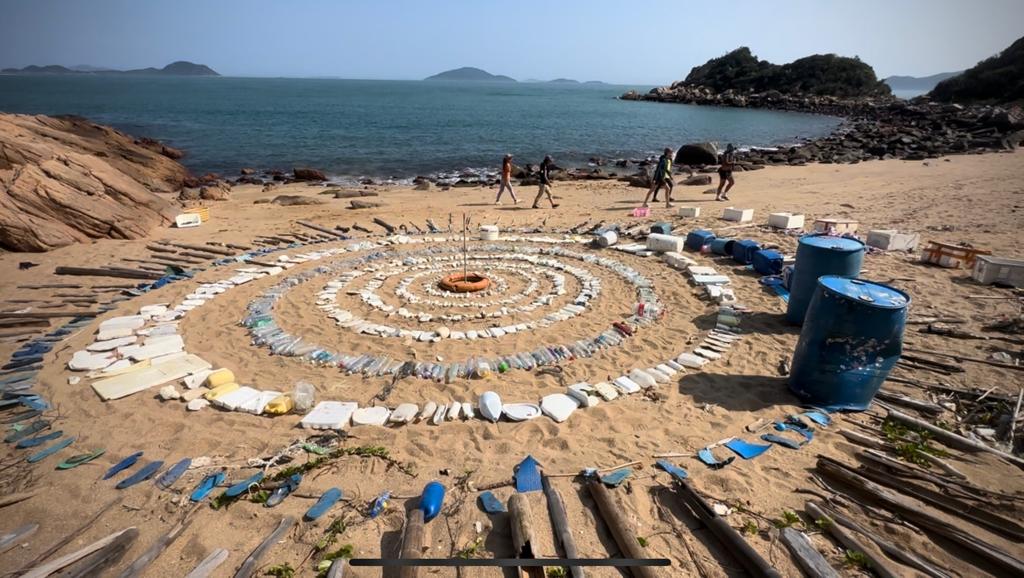
“In the face of an immeasurable amount of plastic waste caused by human ignorance it is only natural to feel sick, ashamed, helpless, depressed,” Klauss told HKFP on Monday, adding that the presence of nature, and heading outdoors, provides a soothing feeling of being part of the bigger picture.
“Getting people physically out of the office or classroom, and psychologically out of their comfort zones is as important if not more important than the result,” she said. The participants were “amazed” trash could look so good, she added.
According to Ocean Park, around 60 to 80 per cent of marine trash is plastic, and around a million plastic bags and 28 million plastic bottles are consumed globally each minute. Plastic can take up to 1,000 years to degrade, whilst microscopic fragments can be absorbed by nature.

It says that marine debris – most of it originated on land – has harmed at least 267 different species, including fish, dolphins, whales, sea lions, seals, sea turtles and seabirds. “For example, over 1,000 Antarctic fur seals have been found entangled in one region of the southern Atlantic. A stranded sperm whale had over 73 kg of debris in its stomach. On a Pacific island, some albatrosses were unintentionally feeding plastic fragments to their chicks,” their website says.
Hong Kong’s Worldwide Fund for Nature estimates that at least 11 million tonnes of plastic enter the world’s oceans annually.
Four government departments are responsible for tackling marine waste, depending on where the litter ends up, and whether it is floating. A 2015 study by the Environmental Protection Department found that 95 per cent of the waste found on – and in – the ocean, as well as on shorelines, was locally generated.
‘Trash-Land-Art’
Between 2011 and 2015, Klauss used marine litter and natural objects as part of another Lantau series called Trash-Land-Art.
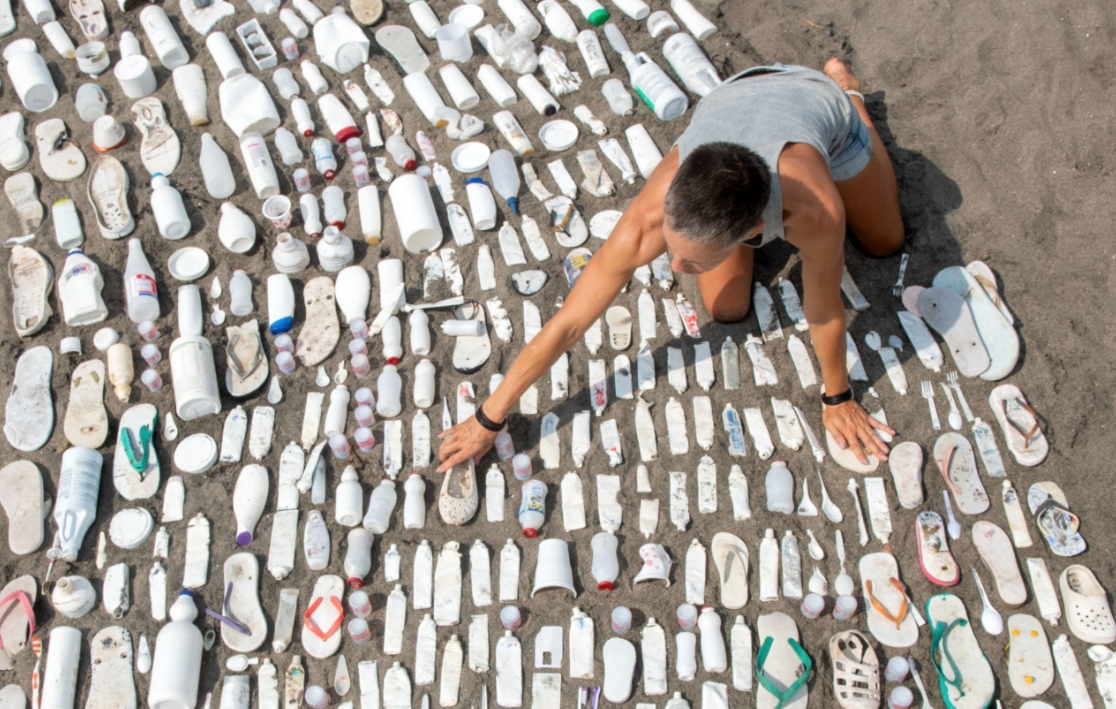
Sunday marked the hottest March day since records began, with the Observatory warning that 2023 could be see warmer than normal temperatures.
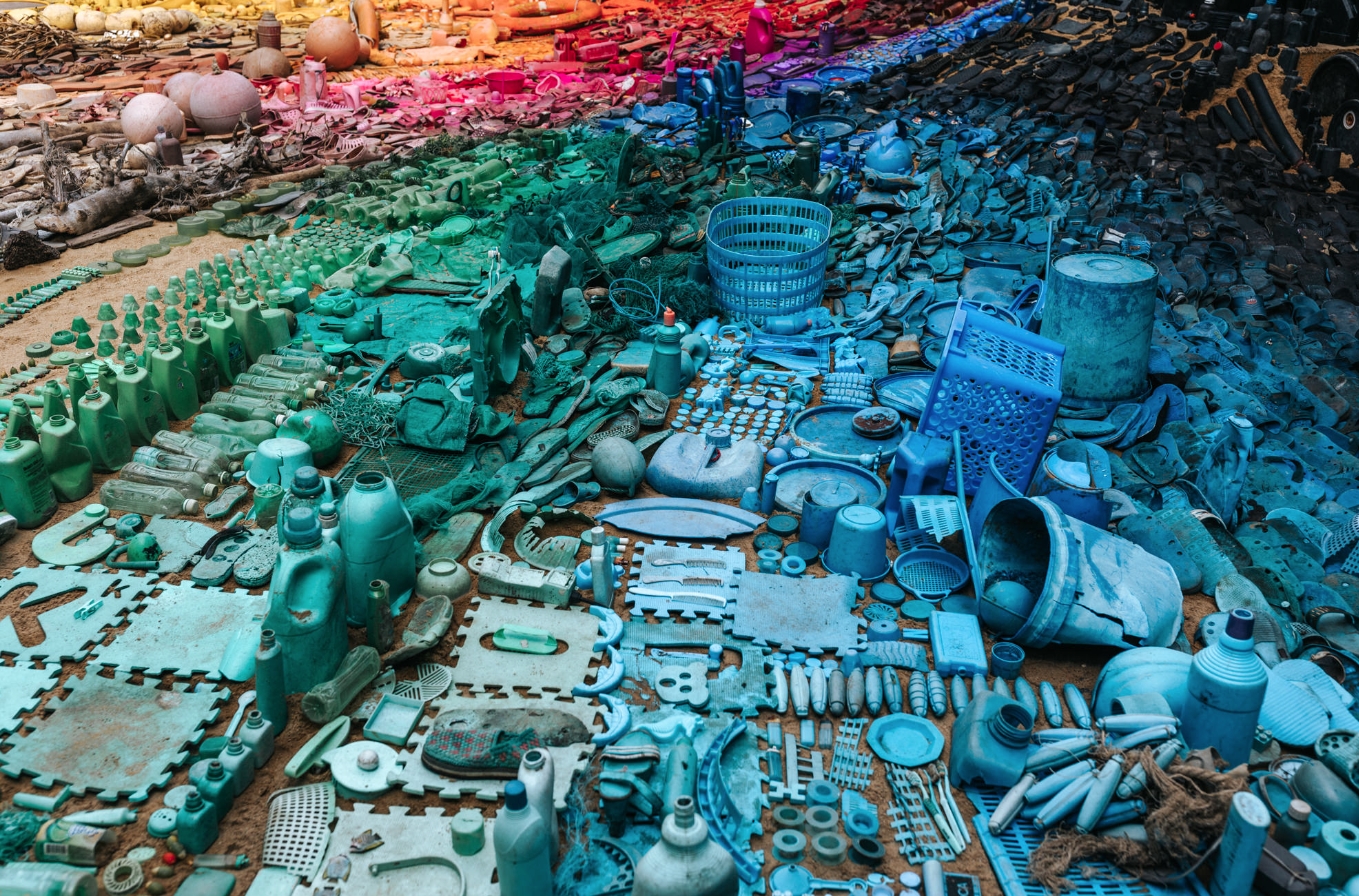
The past nine years were the warmest on record globally, according to the World Meteorological Organisation. Last year also saw global mean sea levels reach all-time highs owing to the melting of glaciers, ice sheets and continued ocean warming.
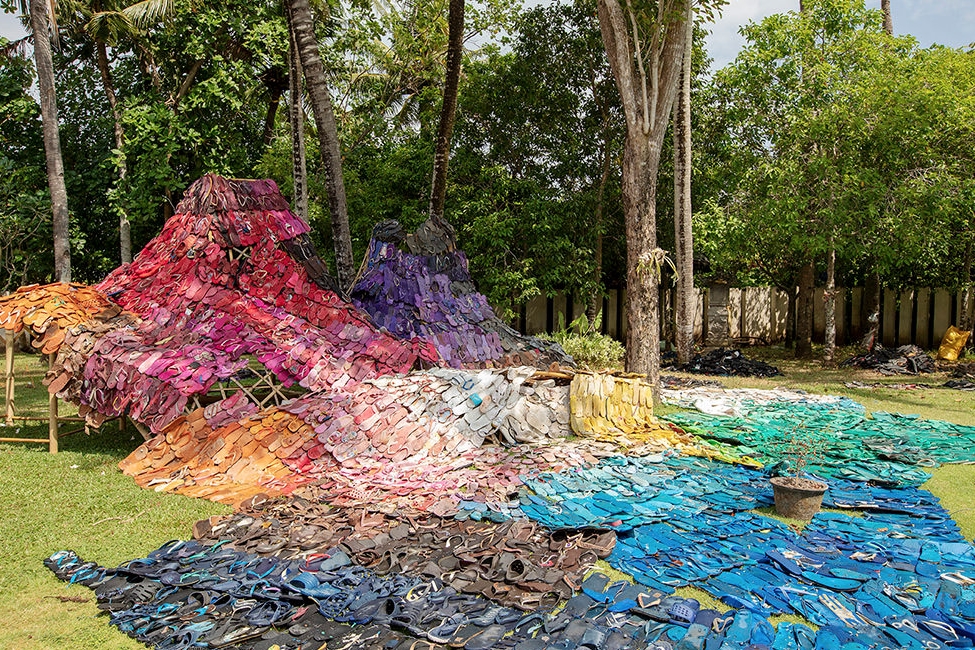
Klauss sells prints of her work from HK$2,800, partly to fund future clean-ups.
Littering Hong Kong waters is an offence and liable to a fine of HK$10,000 and six months imprisonment. Residents may report floating refuse and marine littering by calling 1823.
Support HKFP | Policies & Ethics | Error/typo? | Contact Us | Newsletter | Transparency & Annual Report | Apps
Help safeguard press freedom & keep HKFP free for all readers by supporting our team

LATEST FROM HKFP
HKFP has an impartial stance, transparent funding, and balanced coverage guided by an Ethics Code and Corrections Policy.
Support press freedom & help us surpass 1,000 monthly Patrons: 100% independent, governed by an ethics code & not-for-profit.





